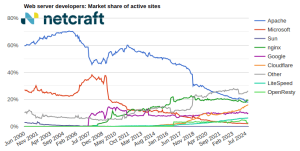Virtual Private Server (VPS) hosting and Cloud hosting are two of the more popular options that are available to companies looking to host their websites with a third-party service provider. With VPS hosting, a website is hosted inside a virtual partition on a large hosting server. The hosting server itself typically contains numerous similar virtual partitions, or virtual servers, each one of which in turn is capable of hosting a separate website. A cloud option is somewhat similar, in the sense that websites are typically hosted on a virtual partition. However, in a cloud environment, the hosting server itself comprises of a collection of servers and storage resources that are tied together to create one massive hosting resource.
Despite the tremendous buzz generated by cloud hosting services, for most website owners today, VPS services offer a more practical and cost-effective solution. With VPS hosting, website owners can purchase the specific amount of computing and storage resources they require for their current needs, and only pay for that specific amount every month. VPS models allow companies to develop a predictable budget for their website hosting needs and gives them the flexibility to move quickly to a new plan in case their resource requirements increase over time.
In contrast, with many cloud computing plans, website owners do not have to specify their resources requirements up front. A website can use as much resources as it needs at any time, or as little as it needs. Website owners are typically billed based on their actual usage of resources during a bill cycle. While such scalability-on-demand can be extremely useful, it can also be costly. As a result, cloud options are often more costly than conventional VPS hosting plans. That is one of the reasons why industry analysts often recommend cloud hosting plans only for larger websites, such as those that garner upwards of 50,000 hits a day or those that support robust e-commerce capabilities.
A VPS plan also gives a website owner more direct control over the virtual domains. Most VPS plans allow website administrators to configure their virtual domains and to run the software of their choice inside their virtual servers. Such flexibility is harder to come by with cloud plans. One of the most compelling cases for choosing VPS models is the fact that it offers an easy upgrade path to cloud hosting environments. Companies that currently have their websites hosted on a Virtual Private Server can migrate to the cloud relatively easily because the hosting models are almost identical. With both VPS and cloud based models, websites are hosted on virtual partitions within larger servers so companies that are already using VPS hosting will see little to no difference from a migration to cloud computing.




